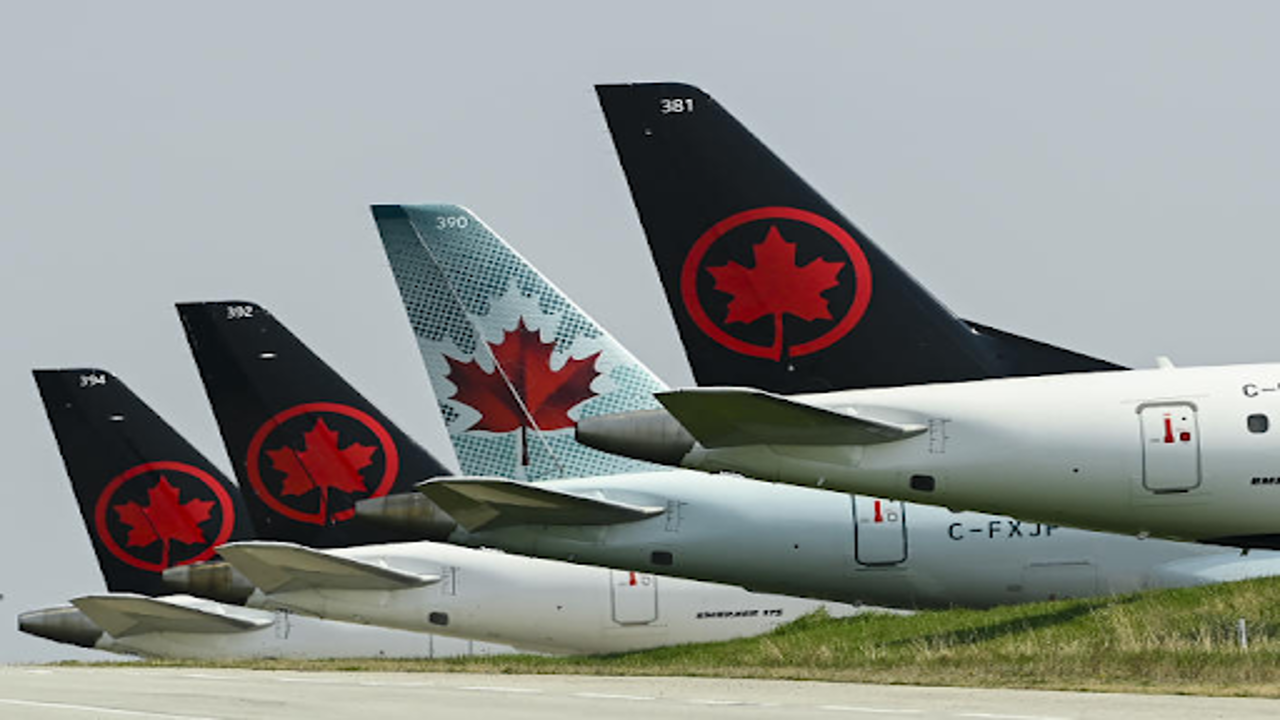
Air Canada planes are parked on the runway at Toronto’s Pearson International Airport on Wednesday, April 28, 2021. THE CANADIAN PRESS/Nathan Denette
Air Canada saw its stock decline on Wednesday, and the airline’s CEO expressed disappointment with the current share price. The Montreal-based airline released its second-quarter financial results, which were in line with the lower forecasts provided last month. For the quarter, Air Canada reported a net income of $410 million, a decrease from $838 million the previous year. This drop was attributed to increased competition on international routes and higher fuel costs.
By the end of the day, Air Canada’s stock fell by 1.39% to $14.93, having dropped as much as 2.5% earlier in the session. Over the past year, the stock has plummeted approximately 34%, and it has fallen around 19% so far in 2024.
Michael Rousseau, the airline’s CEO, shared his frustration during a post-earnings call with analysts. He expressed disappointment with the stock’s performance, particularly after a record-breaking year in 2023 and a fully repaired balance sheet. Rousseau also noted that many other airline stocks are facing similar issues.
He explained that the latest financial results are being compared to an exceptional year in 2023, which saw a surge in demand as travel rebounded post-pandemic. Although the second-quarter results showed a slight increase in revenue, reaching $5.52 billion compared to $5.43 billion the previous year, they fell short of internal expectations. Additionally, passenger revenue per available seat mile—a key performance indicator—dropped by 4.4% year-over-year.
Looking ahead, Rousseau predicted continued declines in revenue per seat mile for the third quarter of 2024. He also mentioned that ongoing airport fees in Canada are expected to be a challenge for several years. Rousseau criticized the selective comparison of travel costs in Canada, arguing that it is misleading.
Despite these hurdles, Air Canada plans to increase its seat capacity by 4% to 4.5% in the third quarter compared to the same period in 2023. Last month, the airline had already lowered its profit forecast due to anticipated lower load factors and heightened international competition.
When questioned about the impact of financial pressures on Canadian households, Mark Galardo, VP of Revenue and Network Planning, reported no significant slowdown in consumer spending. Analysts also inquired whether Air Canada might use its strong financial position to buy back its own shares. Rousseau affirmed that this option is being considered as part of their broader capital allocation strategy, aimed at both growing the business and rewarding shareholders.















